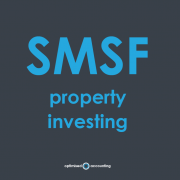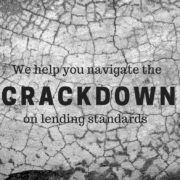When you sell an investment property, you may make either a capital gain or a capital loss.
A capital gain or loss is the difference between what it cost you to obtain and improve the property (the cost base) and the amount you receive when you dispose/sell it.
In Australia, if you have a capital gain, it will increase the tax you need to pay. You may want to work out how much tax you will owe and set aside funds to cover it.
This tax is called Capital gains tax (CGT). Sometimes, however, you will in fact not have a gain, but a loss, and so this needs to be calculated.
How do capital gains or losses apply?
If you make a:
- Net capital gain in an income year (July–June), you’ll generally be liable for capital gains tax (CGT)
- Net capital loss, you can carry it forward and deduct it from your capital gains in later years.
Your capital gain or loss may be disregarded if a rollover applies – for example, if your property was destroyed or compulsorily acquired, or you transferred it to your former spouse under a family law settlement.
If you are a co-owner of the property, you’ll make a capital gain or loss in accordance with your ownership interest in the property.
If you rent out part of your home, you can usually claim the main residence exemption for the remainder.
The application of a capital gain or loss depends on when you acquired the property:
- If you acquired the property before 20 September 1985 then it will only apply to certain capital improvements made after that date.
- If you acquired the property after 20 September 1985, then it will apply to the entire property.
How do you know if you have a capital gain or a loss?
To calculate if you have a capital gain or a capital loss, these are the things we will take into account:
Cost Base:
- Purchase price
- Date of purchase
- Stamp Duty
- Conveyancing Costs
- Building & Pest inspections on purchase
Sale Price:
- Sale contract
- Statement of adjustments
- Agent commission & marketing fees
Timeline of use of property:
- Dates that you’ve lived in the property
- Dates that the property was rented out
- Dates that the property was used for other purposes (left vacant etc)
Some examples from the ATO
Example: capital expenses
Stephen recently purchased a rental property that needed repairs before the tenants moved in. He paid tradespeople to:
- repaint dirty walls
- replace broken light fittings
- repair doors on 2 bedrooms.
The house was also treated for damage by white ants.
Because Stephen incurred these expenses to make the property suitable for rent (not while he was using the property to generate rental income), these expenses are capital expenses.
+
Example: capital gains on the sale of a co-owned rental property
Karl and Louisa bought a residential rental property in November 2015 for a purchase price of $750,000.
They incur costs of purchase, including stamp duty and legal fees of $30,000.
After purchase they improved the property by constructing a fence for $6,000.
Over the 5 years of ownership of the property, they claimed $25,000 (average $5,000 per year) in decline in value deductions and $35,000 (average $7,000 per year) in capital works deductions.
In November 2020 they sold the property for $900,000. Their costs of sale, including legal fees, were $10,000.
A + B + C − D − E + F = Cost base
Where:
- A is the purchase price
- B is the costs of the purchase
- C is the cost of property improvements
- D is the decline in value deductions
- E is the capital works deductions
- F is the legal fees
$750,000 + $30,000 + $6,000 − $25,000 − $35,000 + $10,000 = $736,000
The capital gains outcomes are:
Proceeds − Cost base = Capital gain outcome
$900,000 − $736,000 = $164,000
As the property has been owned for more than a year, the discount capital gain rules reduce the capital gain to $82,000.
Karl and Louisa owned the property jointly. This means that they each have a capital gain of $41,000 which they will need to put in their tax return for the year in which the contract to sell the property was made, being the 2019–20 year.
How can we help?
We are business accounting specialists, and with that quite often includes business owners who also have investment properties of their own. (Or part of your business could be investment focused).
If you’d like to talk to us about how we can work towards improving both your personal and business situation, please get in touch and we will organise a free discovery session to explain how we can help.
Learn more tips for optimising your business
There are many tricks to the trade, and if you want to make the most of them to grow your business, jump into our email newsletter:










